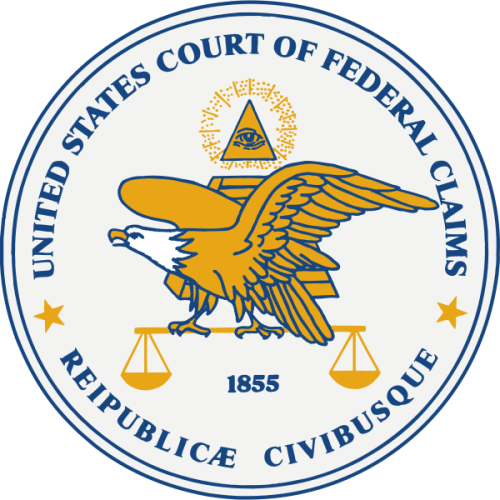
Ohio litigator Benjamin Beaton is a conservative who clerked for one of the Supreme Court’s more liberal jurists. Now, Beaton has been nominated for a vacancy on the Western District of Kentucky.
Background
A native of Paducah in Western Kentucky, Benjamin Beaton was born in 1981. He received his B.A. summa cum laude from Centre College in 2003 and his J.D. cum laude from Columbia University Law School in 2009, working for Rep. Edward Whitfield in between.[1] After law school, Beaton clerked for Judge Arthur Raymond Randolph on the U.S. Court of Appeals for the D.C. Circuit and then for Justice Ruth Bader Ginsburg on the U.S. Supreme Court.[2] Beaton also spent several months in Uganda as a legal fellow with the International Justice Mission.
After his clerkship, Beaton joined Sidley Austin in Washington D.C. He is currently a Partner in the Cincinnati office of Squire Patton Boggs.
History of the Seat
Walker has been nominated for a vacancy on the U.S. District Court for the Western District of Kentucky. This seat will open in September when Judge Justin Walker, another McConnell protege, will move to the D.C. Circuit.
Legal Experience
Beaton has practiced civil and criminal litigation at the firms of Sidley Austin and Squire Patton Boggs. While at Sidley Austin, Beaton was one of the lead attorneys in a suit challenging the Environmental Protection Agency’s Cross-State Air Pollution Rule.[3] The rule regulates the emissions of certain gases between “upwind” and “downwind” states. After a divided panel of the D.C. Circuit blocked the rule, the Supreme Court reversed and remanded.[4] On remand, in an opinion by Justice Kavanaugh, the D.C. Circuit blocked the rule.[5]
Among other significant matters he has handled, Beaton represented a hospital in procedures before the Kentucky Supreme Court challenging a discovery order that required turning over patient safety work product from the hospital’s records.[6] Beaton persuaded the Kentucky Supreme Court to overturn a prior plurality opinion and hold that the information at issue in the case was privileged and protected.[7]
Writings
Throughout his career, Beaton has frequently spoken and written on the law. For example, in one speech at Western Kentucky University, Beaton described his experience with the “professionalism” of the Supreme Court, noting examples of collegiality and problems on the Supreme Court.[8] Beaton also runs the Sixth Circuit Appellate Blog. Among his dossier of writings, two papers are of particular significance.
Walking the Federalist Tightrope
While a law student at Columbia, Beaton authored an article discussing a potential framework for intrastate development and use of health information technology (“HIT”), and the development of a model of interstate cooperation to improve healthcare outcomes consistent with the federalist structure of government.[9] In the paper, Beaton notes that the federal government has largely failed in developing regulation to provide a clear framework for development of HIT and that states have been forced to act to fill this vacuum.[10] Beaton argues for a federally established and managed “forum for interstate collaboration,” which mandates information sharing and that states would be required to participate in.[11]
Pragmatism of Interpretation
In 2018, Beaton reviewed Judge Richard Posner’s book Richard A. Posner, The Federal Judiciary, alongside Judge Amul Thapar of the U.S. Court of Appeals for the Sixth Circuit.[12] The review challenges the central thesis of Posner’s book, that judges use overly formal legal principles in order to disguise result-oriented decisionmaking in the veil of objectivism, and that judges should avoid this by adopting “judicial pragmatism” making decisions with a practical eye towards “socially beneficial effects.”[13] Beaton and Thapar argue that Posner’s solution would create more result-oriented decisionmaking, not less, and that the real solution to overly formal decisionmaking is to focus on text and precedent.[14]
Overall Assessment
While still under the age of forty, Beaton has significant litigation experience, a prestigious Supreme Court clerkship, solidly conservative credentials (including membership in the Federalist Society), and a paper trail reflecting a penchant for textualist and originalist judging. All of this adds up to a conservative but confirmable nominee.
Senators may raise concerns that Beaton lacks the twelve years of practice experience the ABA seeks as a base level of qualifications, but proponents will note his Supreme Court clerkship. Other Senators may oppose Beaton based on his litigation against EPA anti-pollution rules. However, these concerns should not affect his confirmation. Given that he hails from the state of Kentucky, expect the Majority Leader to pull out the stops to get Beaton on the bench before the end of the year.
[1] See Leanne Fuller, Trump Nominates Paducah Native for Federal Judgeship, WPSD Local 6, Aug. 12, 2020, https://www.wpsdlocal6.com/news/trump-nominates-paducah-native-for-federal-judgeship/article_71a5cb46-dcf4-11ea-9bb0-2f9a3c5e1b68.html.
[2] Id.
[3] See EME Homer City Generation LP v. EPA, 795 F.3d 118 (D.C. Cir. 2015).
[4] See EME Homer, 134 S.Ct. 1584 (2014).
[5] See EME Homer, supra n. 3 at 124.
[6] Baptist Health Richmond, Inc. v. Clouse, 497 S.W.3d 759 (Ky. 2016).
[7] See id. at 766.
[8] Jack Dobbs, Beaton Discusses Civility, Professionalism in the Supreme Court, College Heights Herald: Western Kentucky University, Nov. 15, 2018.
[9] Benjamin J. Beaton, Walking the Federalist Tightrope: A National Policy of State Experimentation For Health Information Technology, 108 Colum. L. Rev. 1670 (Nov. 2008).
[10] See id. at 1687-88.
[11] See id. at 1699.
[12] See Amul R. Thapar and Benjamin J. Beaton, The Pragmatism of Interpretation: A Review of Richard A. Posner, The Federal Judiciary, 116 Mich. L. Rev. 819 (April 2018).
[13] See id. at 823.
[14] See id. at 827-28.



